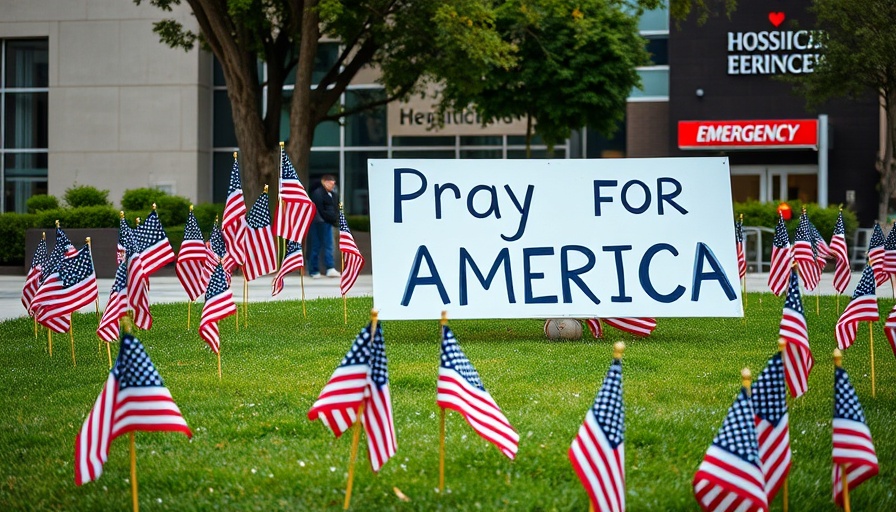
The Rising Tide of Political Violence: A Dangerous Trend
The assassination of Charlie Kirk, a well-known political figure and Turning Point USA founder, is not just a tragedy; it shines a light on a disturbing shift within political discourse, particularly among the liberal left. As chilling footage of the shooting spread online, it became clear that Kirk's death was not merely mourned but, in some circles, celebrated. This incident raises vital questions about the normalization of hate and violence in political discussions. In fact, polling by YouGov indicates that approximately 18% of liberals might consider political violence justified, which starkly contrasts with just 6% of conservatives. This disparity reveals an unsettling trend worth examining closely.
The Culture of Hate: Some Political Responses
While many Democratic politicians condemned the horrific act, reactions from everyday individuals within the party have highlighted a deeper issue. Some celebrated Kirk's demise, with statements like, 'God he got the day he deserved.' Such sentiments showcase how some members of society may feel validated, even empowered, to express extreme views without repercussion. Educators and healthcare professionals have publicly shared such remarks, indicating that these worrisome ideas are not confined to fringe elements but are emerging from mainstream viewpoints within liberal circles.
Examining the Role of Echo Chambers
In today’s digital age, echo chambers online allow extreme opinions to thrive, leading to an environment where extreme rhetoric becomes normalized. Algorithms prioritize engagement and controversy, which can inadvertently amplify hateful sentiments. For our elderly and retirees, who may not always be in tune with the changing landscape of social media, such hostility can foster unease and fear. Discussing these developments openly can lead to more understanding while also encouraging conversations about civility, respect, and healthy discourse.
Historical Context: Gripped by Political Polarization
Over the past two decades, American politics have become increasingly polarized. Historically, strong political disagreements existed, but the difference today is the acceptance of violence or the celebration of death rooted in political differences. This evolving landscape affects everyone, especially elders who may feel apprehensive about participating in conversations about current events. Understanding this historical context allows seniors and pre-retirees to better navigate and discuss political issues, ensuring their voices are heard in a polarized climate.
What This Means for Seniors and Retirees
Political violence and expressions of hate affect more than just the individuals directly involved; they shape the societal landscape that our elderly live in. Those in retirement may feel isolated or targeted by a culture that seems hostile, making conversations about these issues even more pressing. Engaging in discussions about violence and hate not only enables awareness but also promotes resilience among seniors, empowering them to address these issues within their circles of influence.
The Path Forward: Encouraging Civil Discourse
In a world where political violence seems more commonplace, promoting civility is crucial. Families, especially children of seniors, can play a pivotal role in ensuring their loved ones feel comfortable sharing their views without fear of backlash. By creating safe spaces for discussions about current events, we can encourage respectful exchanges and counteract the trend of silence that political violence may create among older generations.
Empowering Your Voice: Knowledge as a Tool
The increasing acceptance of negative sentiments must be addressed as a communal challenge. For retirees and those approaching retirement, understanding and discussing such trends can empower them to engage actively in civic life while remaining aware of the evolving political landscape. With knowledge and awareness, seniors can utilize their experiences to foster constructive conversations, bridging generational divides while combating the prevalent culture of violence.
In conclusion, the tragic events surrounding Charlie Kirk's assassination have myriads of implications that stretch beyond politics. They touch on issues of respect, love, and understanding in our communities. As advocates for civil discourse, let us commit to engaging positively to change the narrative.
As a society, we must cultivate a culture where empathy and respect reign. This is particularly vital for our elders and seniors, who deserve to feel safe and respected in discussing political matters. Join the movement for a more compassionate political landscape!
 Add Row
Add Row  Add
Add 




Write A Comment